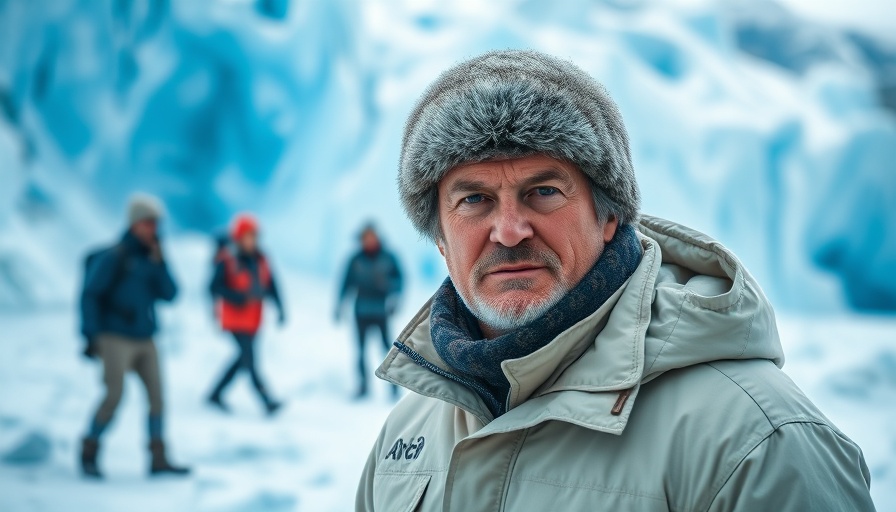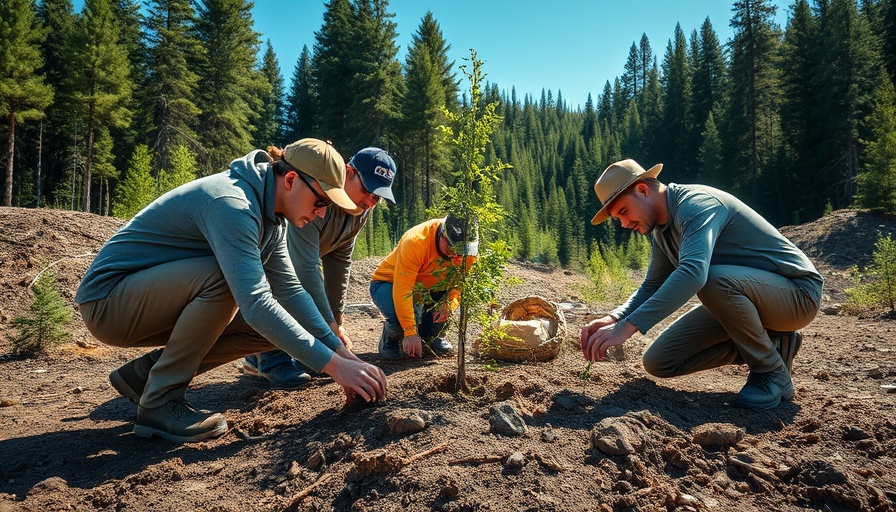
The Fight for Climate Justice: A Farmer's Stand Against Corporate Emissions
In a landmark case that could redefine legal accountability for climate change, Peruvian mountain farmer Saúl Luciano Lliuya has taken on RWE, a major German energy company, in court. This trial, which began on March 17, 2025, in Hamm, Germany, addresses the profound risks posed by climate change, particularly to communities like Lliuya's in Huaraz, Peru. For a decade, Lliuya has worked to hold the company accountable for its historical greenhouse gas emissions, alleging that these emissions have accelerated glacial melting and increased flood risks in his home region.
Bringing together supporters and activists from around the globe, Lliuya's case is not just about him; it’s a call for climate justice that resonates with the ongoing global climate crisis. As he proclaimed outside the courthouse, "We have waited 10 years for this day, this decisive day... I hope that everything goes well." His claim stems from a 2013 study indicating that RWE is responsible for 0.5% of post-industrial climate change, an assertion made poignant by the existential threat these emissions pose to his community.
Understanding the Risks: The Melting Glaciers of Huaraz
Huaraz is a picturesque town nestled in the Andes, yet it faces disaster due to the melting glaciers that are integral to its ecosystem. Lliuya's argument hinges on the idea that as glaciers retreat, lakes such as Lake Palcacocha rise to perilous levels, threatening approximately 50,000 residents with catastrophic flooding. Experts have indicated that the risk to Lliuya’s home—including a 3% chance of flooding over the next thirty years—frames the current lawsuit in a narrative that underscores immediate and urgent climate realities.
Corporate Responsibility: Shifting Legal Paradigms
RWE, while claiming to operate within legal compliance with emissions regulations and aspiring to become carbon neutral by 2040, disputes liability. The company insists that climate change is a global challenge complicated by numerous contributors, not just a few corporations. This case questions the stated position: If individuals and communities are affected by corporate emissions, should the companies be held accountable in international courts? This could set an extraordinary precedent for future cases concerning corporate accountability and climate justice.
Future Liabilities or Opportunities for Change
As the trial unfolds, it could chart new territory in international climate law. The outcome of this case may inspire other communities and individuals globally to seek justice for damages caused by climate change. If the court sides with Lliuya, it could revolutionize how legal systems treat corporate accountability for environmental impacts. Environmental attorneys like Roda Verheyen, who is leading Lliuya's case, remain cautiously optimistic, understanding the precedent this case may set in holding corporations legally accountable for their carbon footprints.
In a world increasingly aware of climate change’s devastating impacts, Lliuya’s quest for justice serves as a powerful reminder of the human cost of corporate emissions and the potential for legal recourse to encourage meaningful action against global warming.
As environmental issues continue to escalate, it's crucial for health enthusiasts and advocates to remain engaged and informed. The precedents set in cases like this not only affect legal frameworks but also public health and sustainability initiatives. Advances in eco-health, combined with community activism, can guide policy changes and corporate accountability. Join the fight for climate justice—every action counts toward fostering a sustainable future!
 Add Row
Add Row  Add
Add 




 Add Row
Add Row  Add
Add 



Write A Comment